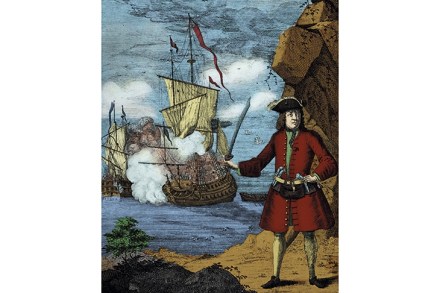Piracy pays: how history’s greatest buccaneer got off scot-free
In 1694 London’s streets echoed with a call to the piratical life: Come all you brave boys, whose courage is bold, Will you venture with me, I’ll glut you with gold?Make haste unto Corona, a ship you will findThat’s called the Fancy, will pleasure your mind. In a week-long orgy of savagery, women flung themselves overboard to escape gang rape The ballad was supposedly written by the ‘pirate king’ Henry Every, who was about to pull off an astonishingly daring raid. In one fell swoop he’d landed the equivalent of $20 million by today’s reckoning, and — some said — married an Indian princess to boot. He’d also vanished off





















